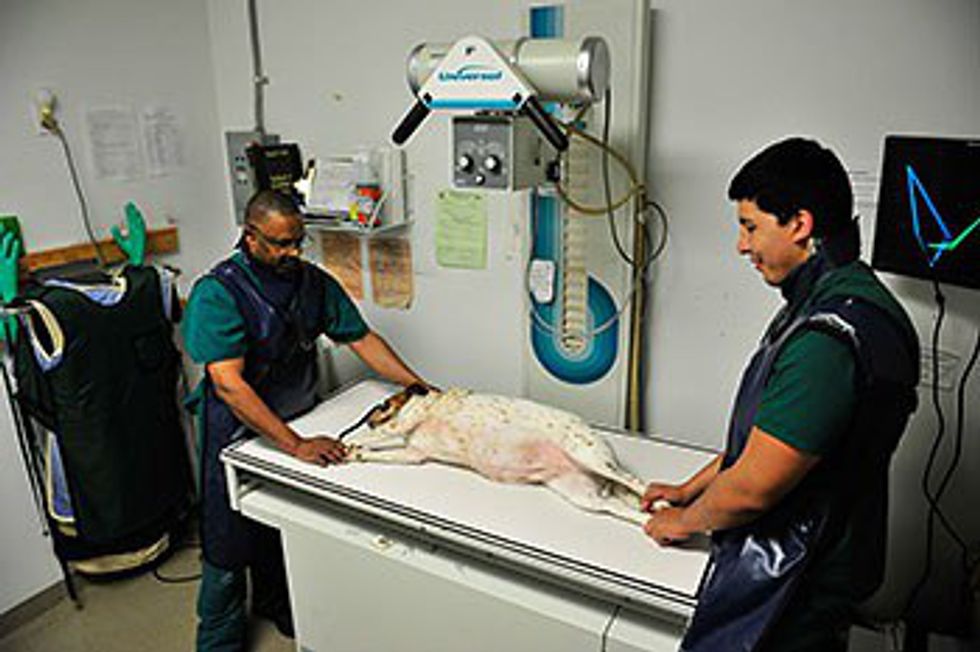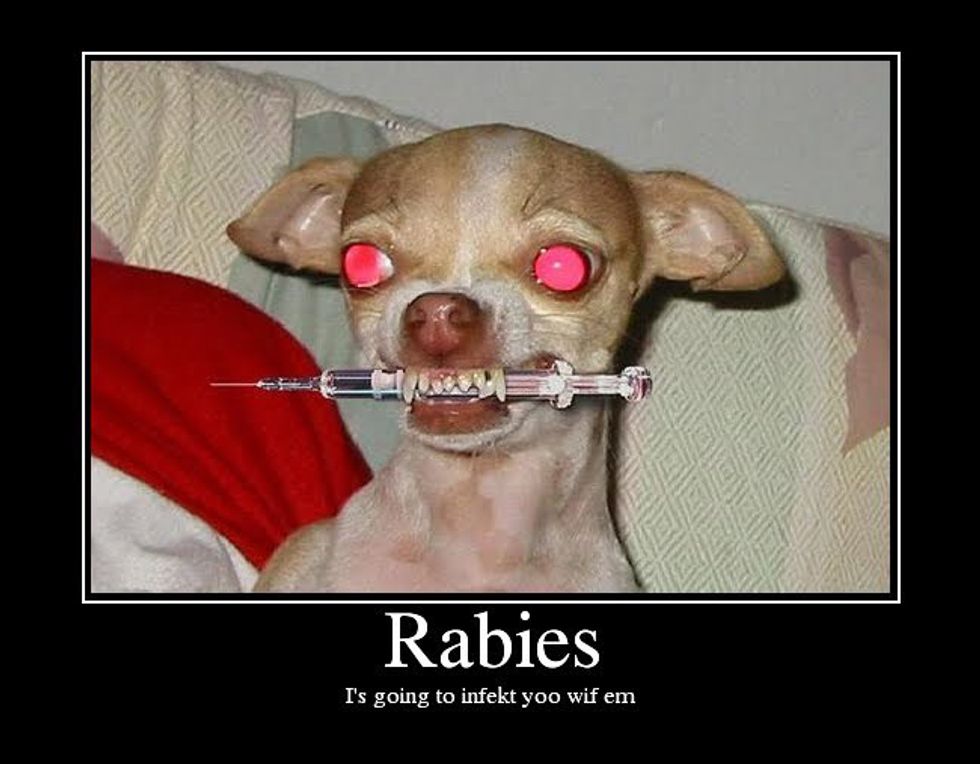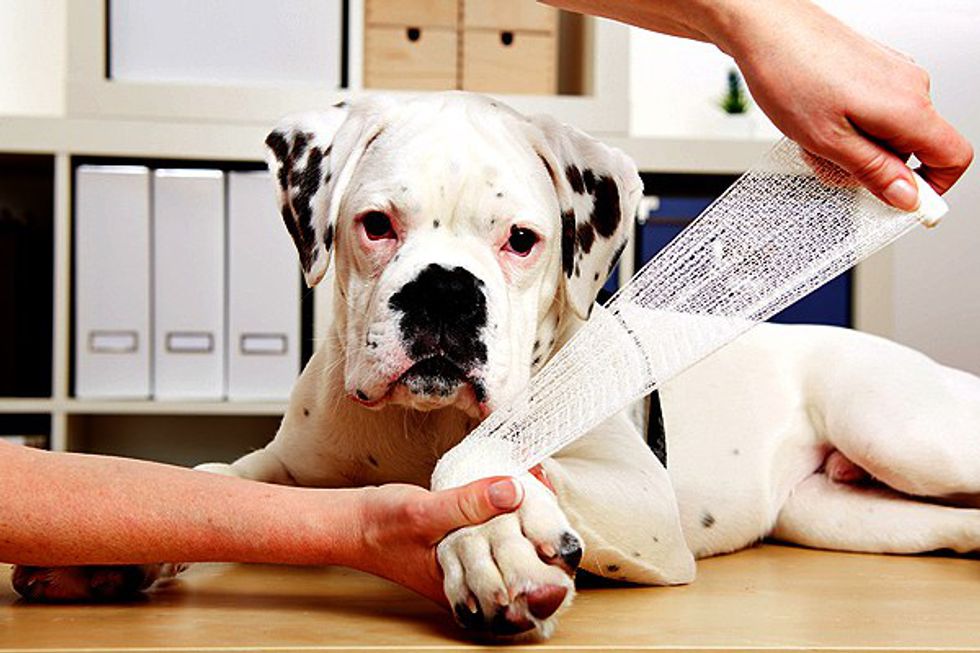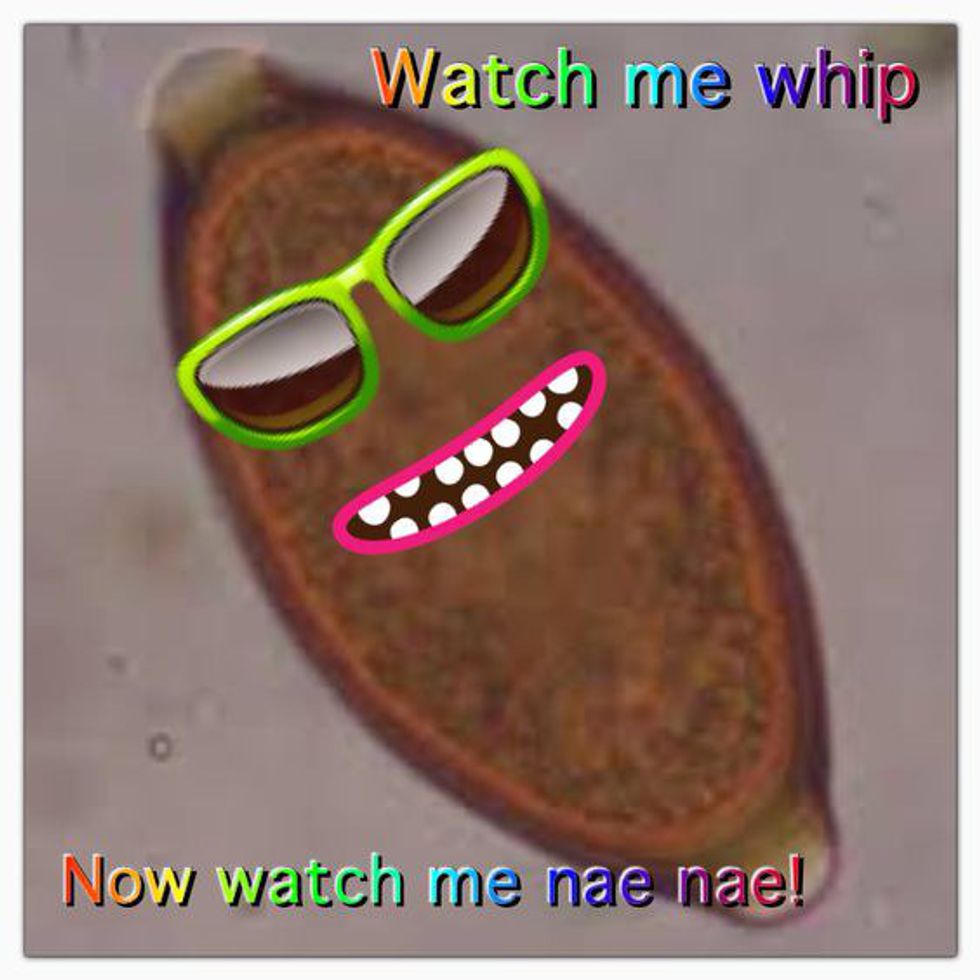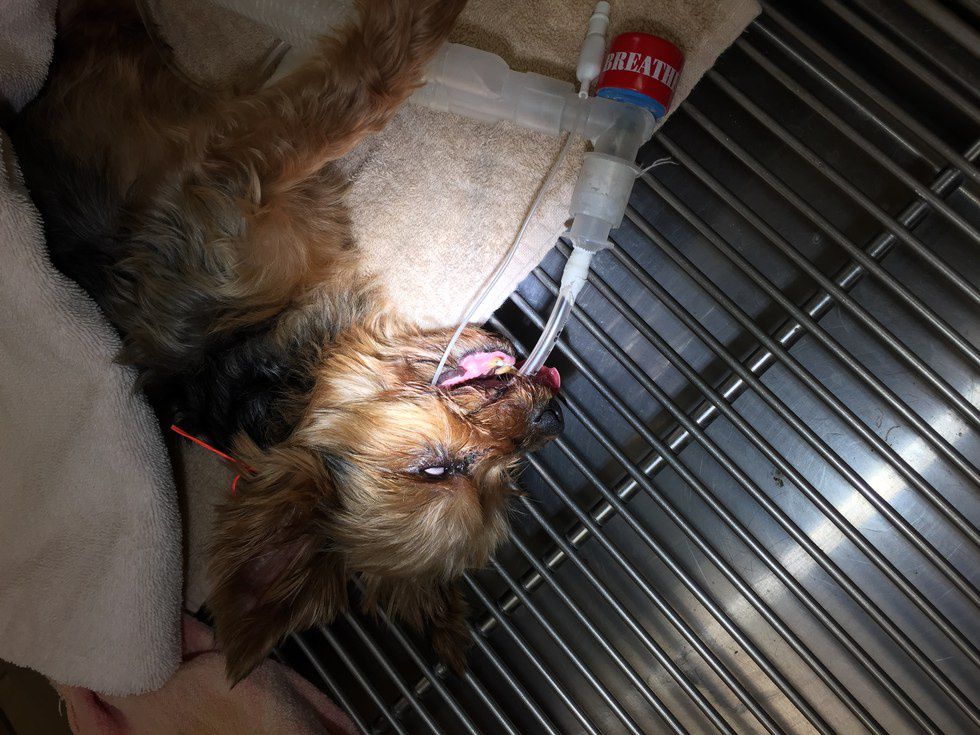Being a veterinary technician is one of the most challenging but incredibly rewarding jobs ever. We are the middle man between the doctor and client and many times, we can even be the ones to save your fur-baby's life. Here are 13 things veterinary technicians are great at!
1. "Bath & Tidy"
Unfortunately, most dogs can not bathe themselves. This term may not be super popular with all veterinary practices, but the meaning is the same. Being an expert at "bath and tidy," you learn how to do four things well: trim nails, bathe dogs, express anal glands (gross, I know) and clean ears.
2. Pulling Blood
This is a very cool and essential skill you will need to learn. Pulling blood is important because it allows us to run many tests and diagnostic techniques from occult heartworm tests to complete blood counts to even a comprehensive profile.
3. Radiology
From measuring to stepping on the pedal, as a VT, you must be good at performing X-rays! It all starts with the area needed, the measurement of that area, then setting the machine to the correct values to get a clear picture. Then comes the fun. You must stretch out the dog putting them in awkward positions in order to get the perfect view, and then "click," when you must step on the small, black pedal to snap it.
4. Communicating
From pets to pet owners, this skill requires some practice and lots of patience. Going with both pets and their owners, everyone needs to be handled differently. Some with great patience and generosity, but others need to be handled a little more roughly to get them thinking in a more favorable way. If you don't think this is tough, try telling a pet owner that their dog or cat of 10 years has passed.
5. Vaccines
Probably the most common thing a tech will do on a daily basis is giving almost all vaccines, all except rabies. These vaccines include: DHPP, Bordetella, Influenza, FVRCP, Feline Leukemia and many more.
6. Other Injections
While most injections will be given subcutaneously (under the first layer of skin), some must be given intravenously or intramuscularly. Again, this is not an easy skill at first, but learning this is imperative for things like sedation, euthanasias, antibiotics, pain control and many more.
7. Bandaging/Taping
From pressure bandaging to setting a soft cast to taping in a catheter, this is a good skill to have. Just don't practice at home or on your friends...
8. Sterility
This lesson is sometimes learned the hard way. There are several viruses than can travel from dog to dog simply by exchanging saliva and it is not hard for us to do this accidentally. As a tech, we wrap surgical packs with great care to be autoclaved, hand things in surgery such as suture or dropping epinephrine or lidocaine, it is imperative to be sterile. Another good example is when taking care of a dog with parvo. You must actually wash your hands with bleach after!
9. Placing Catheters
IV catheters or urethral, two very different things... IV catheters (intravenous) are placed inside a vein and taped in. These are great for quickly transferring things into the bloodstream such as a medication or, more commonly, hydration fluids. Urethral, not so fun, are good for obtaining urine samples on male animals or trying to remove a blockage.
10. Microscope Interpretation
Things you would need to check under the microscope would be things such as: bacteria, mites, microfilaria and other parasites. Things you would read under the microscope would be skin scrapes (checking for mites), Ear or Skin cytology (bacteria), or fecal samples (intestinal parasites.) What you see above is a whipworm found in a fecal sample.
11. Wrapping Skills
Having to always wrap surgical gowns and surgical packs, our gift wrapping skills are well above par.
12. Cleaning Teeth
Oddly satisfying, as a tech, you will learn how to professionally clean, polish and extract teeth.
13. Improvising
Contrary to belief, things do not always go as planned, so learning how to not only improvise, but also improvise efficiently can be life-saving.
There are several more things we do on a daily basis, but these are 13 important ways we can help the doctor take the absolute best care of your fur-babies!




